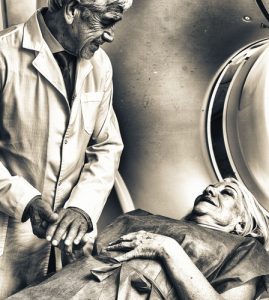Dying is as much part of life as birth, yet many dismiss it, hide it and avoid it. Death is a taboo subject for many. It is forbidden word of bad luck. When such attitudes persist, how one experiences death or experiences death with a loved one can be negative.
It is important to face death as we face birth. We need to live the dying process fully and despite the pain, stand by those who are dying. David Kessler explained it best as how we used to meet our loved ones at the gate of an airport. We met them there, but when their time to leave arrived, we walked them to the gate. While this is no longer possible since 911, the idea and analogy fits perfectly. We welcome many from day 1 and in some cases we also say good bye to them. We cannot cheat the process. We cannot just drop them off at the terminal and allow a shuttle to carry them off. We need to be with them every step of the way.

In honoring them, in honoring the death process, loved ones need to be with the loved one, yet many negative ideas on death prevent this important time of bonding. Seeing death as the enemy, as a bad word, and as something to be avoided, leads to regrets later. It not only affects the dying loved one in a negative way, but it also prevents healthy healing later for the surviving person.
How many times, do individuals not speak about the person’s condition, avoid the disease, maybe even avoid the dying person? How many times, do individuals chastise other family members for speaking about death to the dying, or express emotion.
In addition to dismissing death, many hide emotion. They think one must be strong for the loved one who is dying. This prevents true expression of love. It incurs unresolved issues that can later haunt the bereaved. Most importantly, it prevents the dying to express their own emotions with the loved one. So many chances are lost when death is not spoken about with the dying, or emotions are not permitted to be shared in this intimate moment.
So what do we speak about to the dying? David Kessler and Elisabeth Kubler Ross would simply state, “listen”. By listening, we give ourselves to the dying, and we also allow them to open up. No conversation is wrong. It allows the dying to express their frustrations, their fears, their dreams. It allows closure in things that may never find closure.
Somedays, certain conversations about the reality of death may not be beneficial. Other days, simply talking about the game and allowing the dying to live suffices. Other times, discussing death can help the person face the reality and discuss important matters, or share certain feelings. It is critical in these narrowing days of life, that one shares what one feels. To hide and take away this precious time of mutual disclosure will never be there again.
Hence it is important to share things, to discuss death, to discuss anything and most importantly listen. It is also crucial to share emotion, to allow the dying to know it is fine to be cry too! Too many times, individuals masquerade their feelings in these final precious moments.

Death is part of life and not something that should be done wrongly. Dying wrongly or experiencing death with a loved one is not about how one dies but how one experiences that death or process. One who experiences death with communication and no false faces is not denied the dignity of it. One who sojourns the dying to the final gate, experiences its entirety. It is far from pleasant but when dying and loved ones experience death fully together, then it far more healthy in the short term for the dying and the long term for the mourner. It is a moment in time that is intimate and precious and one we owe our loved ones to experience fully with them.
That is the pain of life but it is part of life. We must live life to the fullest and live it correctly. Death is no different.
Please also review AIHCP’s Pastoral Thanatology Program and see if it meets your academic and professional goals. Care of the dying is an important field and the Pastoral Thanatology Certification can help one in helping others die well and in peace.













